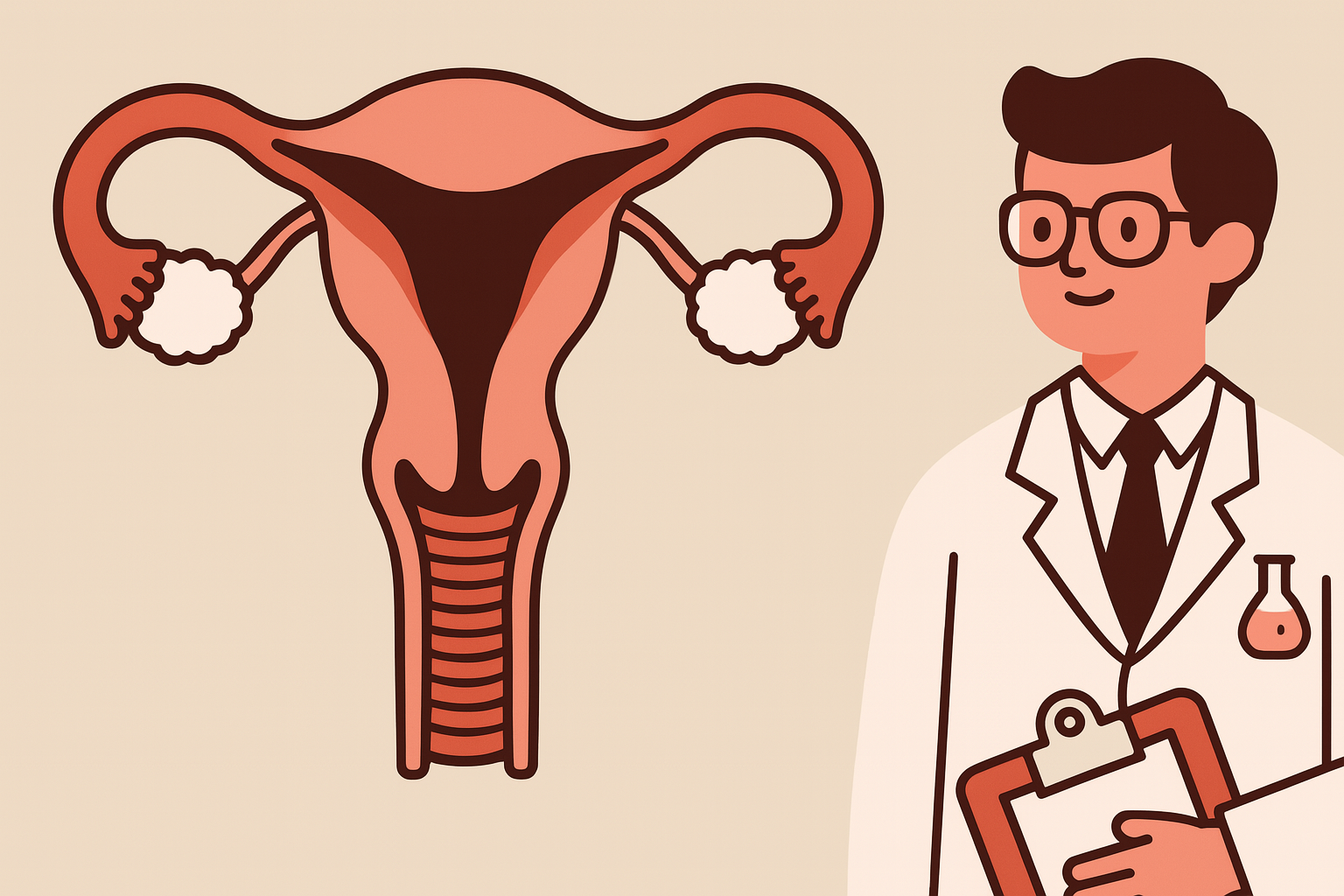Endometrial Cancer: Causes, Symptoms, Diagnosis, and How Bayside Laboratories Can Help

Endometrial cancer — the most common gynecologic cancer in developed countries — originates from the endometrium, the inner lining of the uterus. As obesity rates climb and the population ages, the incidence of this malignancy continues to rise. While it primarily affects postmenopausal women, it can also occur in younger individuals, particularly those with specific hormonal or genetic risk factors.
At Bayside Laboratories, we partner with healthcare providers to offer reliable diagnostic testing and hormone panels that support early detection, risk stratification, and treatment planning for patients at risk for or suspected of having endometrial cancer.
Understanding the Types of Endometrial Cancer
There are two primary histological subtypes of endometrial cancer:
- Type I (Endometrioid carcinoma):
- Estrogen-dependent
- Accounts for the majority of cases
- Often associated with obesity, metabolic syndrome, and unopposed estrogen exposure
- Type II (Non-endometrioid carcinoma):
- Less common but more aggressive
- Not estrogen-dependent
- Includes serous and clear cell carcinoma subtypes
Risk Factors for Endometrial Cancer
Understanding risk factors is key to prevention and early detection. Common risk factors include:
- Unopposed estrogen exposure (obesity, early menarche, late menopause, nulliparity, estrogen-only HRT)
- Age >50 years
- Obesity and metabolic syndrome
- Type 2 diabetes and hypertension
- Tamoxifen use
- Genetic syndromes such as Lynch syndrome (HNPCC)
Protective factors:
- Long-term use of combined oral contraceptives
- Higher parity (number of pregnancies)
Symptoms: When to Investigate
The most common and critical symptom of endometrial cancer is abnormal uterine bleeding, particularly in postmenopausal women. Other signs can include:
- Pelvic or lower abdominal pain
- Pain during intercourse
- Unexplained weight loss
- Unusual vaginal discharge
Early identification of these symptoms should prompt immediate diagnostic evaluation.
Diagnostic Process and Clinical Recommendations
Per the American College of Obstetricians and Gynecologists (ACOG), the recommended diagnostic steps for women presenting with postmenopausal bleeding include:
- Transvaginal ultrasound to measure endometrial thickness
- ≤4 mm is generally reassuring
- 4 mm may warrant biopsy
- Endometrial biopsy (commonly via Pipelle sampling) for histologic confirmation
- If inadequate, dilation and curettage (D&C) or hysteroscopy may be necessary
How We Supports Diagnostic and Risk Management
Bayside Laboratories offers a comprehensive suite of diagnostic tools to support OB/GYNs, oncologists, and primary care providers managing women’s health:
Hormonal and Metabolic Risk Panels:
- Estradiol, FSH, LH, progesterone, testosterone
- Insulin resistance panel
- Comprehensive metabolic panel (CMP)
- HbA1c and fasting glucose
- Lipid profile
Genetic Marker Testing:
- Lynch syndrome screening (MMR gene panel)
- Microsatellite instability (MSI) markers
Inflammatory and Cancer Marker Panels:
- CA-125 (when clinically appropriate)
- CRP and other systemic inflammation markers
Endometrial Cancer Follow-Up Labs:
- CBC, liver function tests, and renal panels (for surgical clearance or chemo monitoring)
Bayside’s test panels can be customized to align with your clinical protocols and patient risk profiles.
Partner with the Best for Women’s Health Diagnostics
Whether you’re managing a patient with unexplained bleeding, conducting routine gynecologic screenings, or treating complex oncology cases, Bayside Laboratories is here to support your diagnostic needs with fast, accurate, and reliable testing.
Latest Posts

STIs (Sexually Transmitted Infections): Why Regular Testing Matters
Early detection saves lives. Bayside Laboratories provides comprehensive STI testing with quick results, advanced PCR technology, and flexible testing options. Serving as the best lab in New York for sexual health diagnostics.
Request Information
Feel free to contact our specialist to find out more about prices and services. We are always ready to answer your questions.








